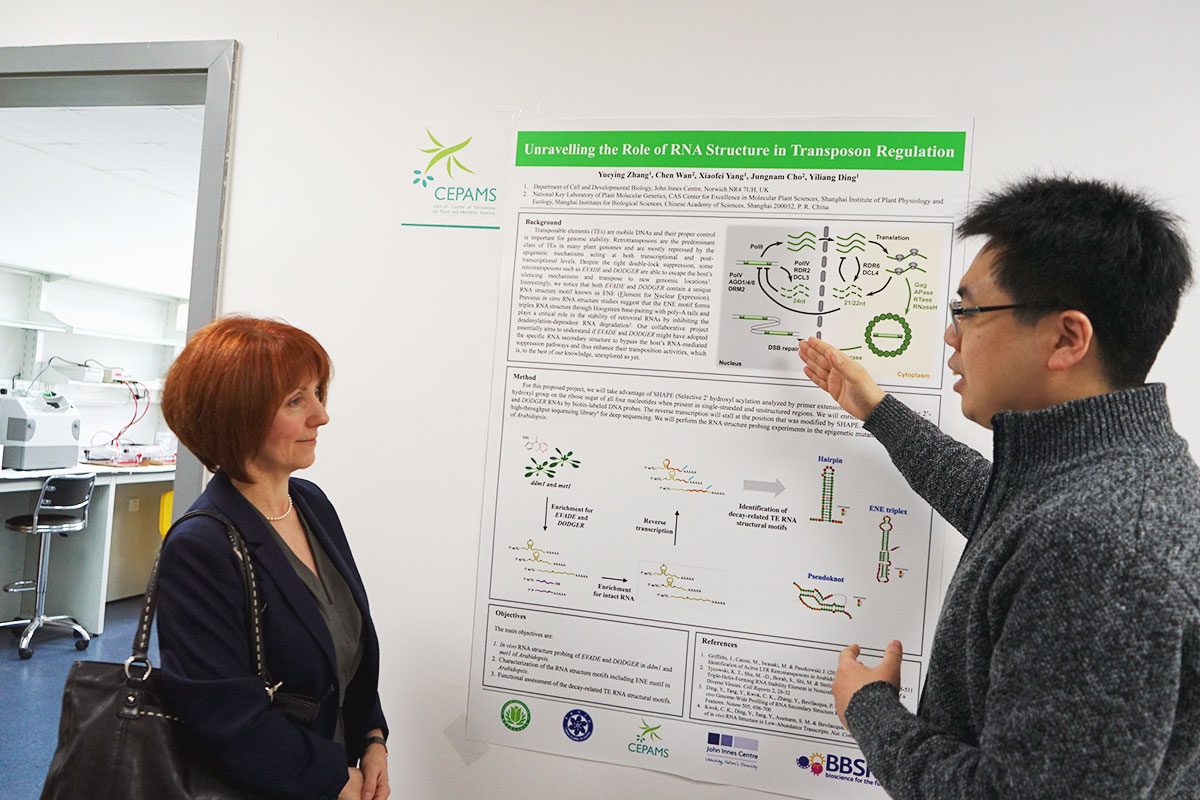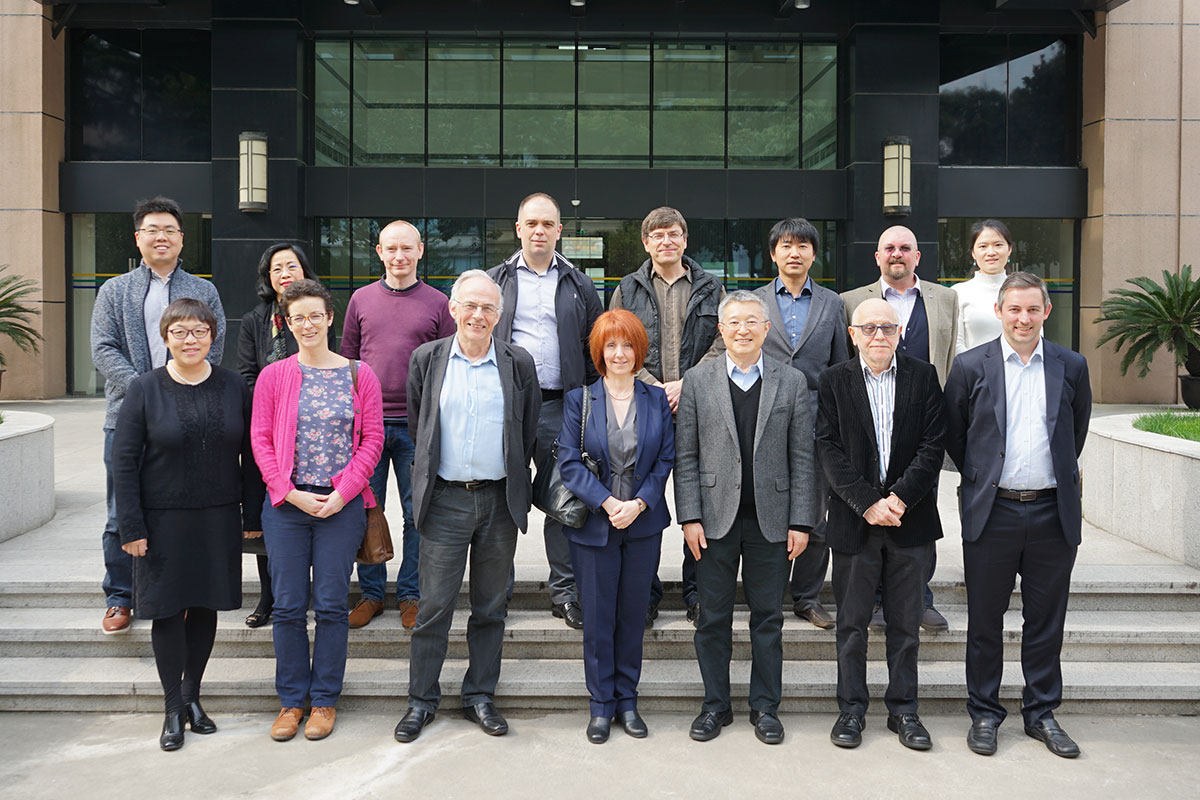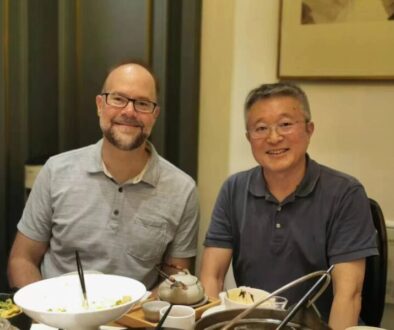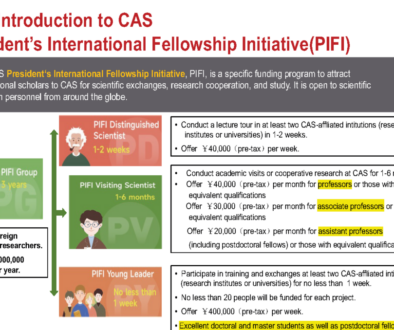CEPAMS Expands its Research Portfolio

The CAS-JIC[1] Centre of Excellence for Plant and Microbial Science (CEPAMS[2]) has been described as the most advanced Sino-UK collaboration in the life sciences.
Since 2014, CEPAMS has been nurturing and strengthening links between UK and Chinese researchers. It has also been hiring some of the best scientists globally to work in CEPAMS’ state of the art laboratories in Beijing and Shanghai.
Between 2014 and 2018, 22 UK-China collaborative research projects have been funded[3], building on the complementary strengths of the three CEPAMS campuses[4]. Four new projects are being launched today by the UK Foreign and Commonwealth Office Chief Scientific Adviser, Professor Carole Mundell, during her visit to CEPAMS in Shanghai. These projects will boost the research links between Norwich, Beijing and Shanghai. All four are being led by newly-hired CEPAMS principal investigators, working closely with John Innes Centre colleagues.
Two of the projects look at the close association between microbes and plants and how this association can be both harmful and beneficial. It is this association that holds the key to future growth in crop yields, reductions in disease and fewer chemical treatments for crops.
One project will explore the anti-cancer properties of some plants used in traditional Chinese medicine in a CEPAMS collaboration that also involves the UK’s Royal Botanic Gardens at Kew.
One further project will examine plants’ molecular responses to abiotic stresses such as heat and drought, which will be of crucial importance in adapting to a changing climate.
FCO Chief Scientific Adviser, Professor Carole Mundell, said “I am delighted to be here at CEPAMS to mark the launch of these four exciting projects, doing exactly what the UK-China Joint Strategy for Science, Technology and Innovation Cooperation set out to facilitate: British and Chinese scientists working in partnership to tackle global problems. All four are excellent examples of how by combining our expertise and sharing information, we can together find solutions to some of the world’s biggest challenges”.
Professor Bin Han, Director of the Shanghai Institute for Plant Physiology and Ecology said “I greatly appreciate Professor Carole Mundell’s visit to our institute today to launch these four excellent UK-China collaborative research projects. I confirm that we will provide full support to these projects, including the necessary funding in China. I am delighted to see the way in which CEPAMS has significantly enhanced the collaboration between British and Chinese scientists since 2014”.
[1] Chinese Academy of Sciences (CAS) and the John Innes Centre (JIC)
[3] The projects are supported by the Biotechnology and Biological Sciences Research Council (BBSRC) in the UK and the Chinese Academy of Sciences (CAS) in China.
[4] The John Innes Centre in Norwich, the CAS Institute of Plant Physiology and Ecology in Shanghai and the CAS Institute of Genetics and Developmental Biology in Beijing.



